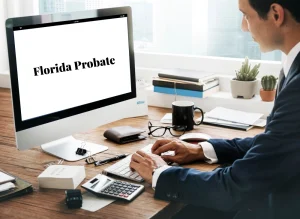
This is one of the most common probate myths we encounter—and unfortunately, it leads to a lot of confusion (and disappointment) for families handling an estate in Florida.
So let’s clear it up:
A Trust Does Not Automatically Avoid Probate
Many people believe that creating a revocable living trust means probate will be completely avoided. While that’s the goal of a trust, it works if the trust is properly funded before the person passes away.
That means assets must be legally titled in the name of the trust, or designated to pass directly into the trust via beneficiary designations or transfer-on-death provisions.
Example: The Unfunded Trust
Let’s say your mom created a valid Florida Living Trust during her lifetime. She did everything right—except one thing:
She forgot to transfer ownership of her house into the trust. Meanwhile, her bank accounts and life insurance policies were set to pay out to the trust automatically upon her death.
What happens?
- The bank accounts and insurance will go directly into the trust (no probate needed).
- But the house? Since it was still in her personal name and not titled in the name of the trust, it will have to go through Florida probate before it can be legally transferred—no matter what the trust says.
Even if it’s a relatively simple administration, probate is still required in this case.
Bottom Line
📌 Just because someone had a trust doesn’t mean probate will be avoided in Florida.
If the trust was not funded properly, and assets were left outside the trust, then probate will likely be necessary.
This is why estate planning doesn’t stop at drafting documents. Ensuring proper funding of the trust is essential to making it work as intended.
Need help reviewing a trust or avoiding probate mistakes?
Contact our office to make sure your plan is complete—and your family isn’t left dealing with probate surprises later.



